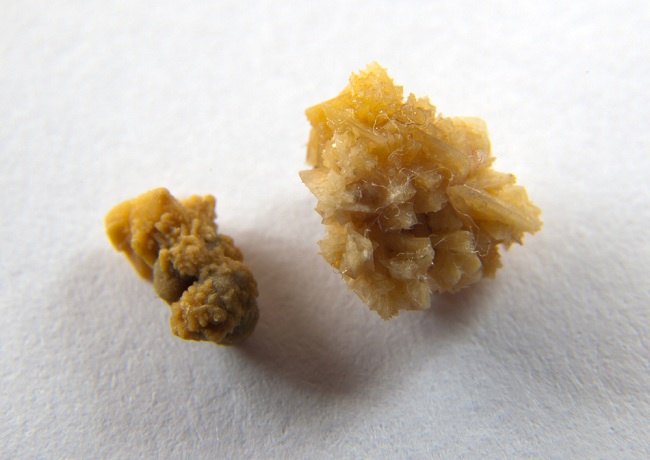Carvedilol is a drug to lower blood pressure in hypertensive conditions. This drug can also be used in the treatment of heart failure or angina. In addition, this drug is also used to reduce the risk of complications after a heart attack.
Carvedilol is a non-selective beta blocker that works by relaxing blood vessels. This way of working will cause the blood vessels to widen and the heart rate to slow down. Thus, blood circulation improves and blood pressure decreases.

Carvedilol Trademarks: Blorec, Bloved, Cardilos, Carivalan, Carvedilol, Carvilol, V-Bloc
What is Carvedilol
| group | Prescription drugs |
| Category | Beta blockers |
| Benefit | Treat hypertension, heart failure, or angina, and reduce the risk of complications after a heart attack |
| Consumed by | Mature |
| Carvedilol for pregnant and lactating women | Category C: Animal studies have shown adverse effects on the fetus, but there are no controlled studies in pregnant women. Drugs should only be used if the expected benefit outweighs the risk to the fetus. Carvedilol can be absorbed into breast milk. If you are breastfeeding, do not use this medicine without consulting your doctor first. |
| Drug form | Tablet |
Precautions Before Taking Carvedilol
Note the following points before using carvedilol:
- Tell your doctor about any allergies you have. Carvedilol should not be given to patients who are allergic to this drug.
- Tell your doctor if you have asthma, AV block, severe bradycardia, or severe heart failure that requires continued therapy with certain medications. Carvedilol should not be given to patients with these conditions.
- Tell your doctor if you have or have recently had a heart attack or cardiogenic shock.
- Tell your doctor if you have heart disease, hyperthyroidism, diabetes, low blood sugar, Raynaud's syndrome, kidney disease, peripheral artery disease, liver disease, COPD, myasthenia gravis, cataracts, or glaucoma.
- Tell your doctor if you are taking certain medications, supplements, or herbal products.
- Tell your doctor if you are pregnant, breastfeeding, or planning a pregnancy.
- Tell your doctor that you are taking carvedilol before having any surgery, including dental surgery.
- Do not drive a vehicle or do activities that require alertness after taking carvedilol, as this medicine may cause dizziness, drowsiness, or even fainting.
- Do not drink alcohol or smoke while taking carvedilol, as this can increase the risk of side effects.
- See your doctor right away if you experience an allergic drug reaction, serious side effect, or overdose after taking carvedilol.
Dosage and Instructions for Use Carvedilol
The dose given by the doctor will be adjusted to the patient's condition and response to the drug. Here is a breakdown of common carvedilol dosages:
Condition: Hypertension
- Mature: Initial dose 12.5 mg, once daily, for 2 days. Follow-up dose 25 mg, once daily. The maximum dose is 50 mg per day.
- seniors: 12.5 mg, once a day. The dose may be increased if needed after 2 weeks of treatment.
Condition: Chronic stable angina
- Mature: Initial dose is 12.5 mg, 2 times daily, for the first 2 days. Follow-up dose 25 mg, 2 times daily. The maximum dose is 100 mg divided into 2 doses.
- seniors: Initial dose is 12.5 mg, 2 times daily, for the first 2 days. Follow-up dose 25 mg, 2 times daily.
Condition: Impaired left ventricular function after a heart attack
- Mature: Initial dose 6.25 mg, 2 times a day. After 3–10 days have elapsed, the dose may be increased to 12.5 mg, 2 times daily. The dose can be increased up to 25 mg, 2 times a day.
Condition: Heart failure
- Mature: Initial dose 3.125 mg, 2 times daily, for 2 weeks or more. The dose may be increased gradually to 6.25 mg, 2 times daily, every 2 weeks of treatment. The maximum dose for body weight (BB) is 85 kg 50 mg, 2 times a day.
How to Take Carvedilol Correctly
Follow your doctor's advice and read the instructions on the medicine package before taking carvedilol. Do not reduce or increase the dose taken.
Carvedilol needs to be taken with food. Be sure to take carvedilol at the same time each day for more effective treatment.
Keep taking the drug even though the condition has improved. Do not stop taking the drug without consulting your doctor first. Stopping the drug suddenly can increase the risk of your condition getting worse.
If you forget to take this medicine, take it immediately if the gap with the next consumption schedule is not too close. When it is close, ignore and do not double the dose.
For maximum treatment effect, follow the doctor's advice regarding the implementation of a healthy lifestyle, such as eating nutritious foods, controlling stress, exercising regularly, and not smoking.
Store carvedilol in a closed container in a cool, dry room. Keep the medicine away from direct sunlight and keep the medicine out of reach of children.
Carvedilol Interactions with Other Drugs
Drug interactions that can occur when carvedilol is used with certain drugs are:
- Increased risk of side effects when used with calcium antagonists, amiodarone, MAOIs, reserpine, or methyldopa
- Increased levels of ciclosporin in the blood
- Enhanced blood sugar lowering effect of insulin or anti-diabetic drugs
- Increased risk of hypotension when used with anesthetic drugs
- Enhanced effect of constricting blood vessels (vasoconstriction) when used with ergotamine
- Increased blood levels of carvedilol when used with CYP450 inhibitors, such as cimetidine, erythromycin, fluoxetine, haloperidol, or ketoconazole
- Decreased heart rate when used with digitalis glycosides.
- Decreased blood levels of carvedilol when used with CYP450 inducers, such as rifampicin or barbiturates
Carvedilol Side Effects and Dangers
Some of the side effects that can occur after taking carvedilol are:
- Feeling tired or weak
- Dizziness, headache, drowsiness
- Cold, numb, or tingling hands and feet
- Dry eyes or visual disturbances
- Sleep disturbance
- Diarrhea
- Erectile dysfunction
Check with your doctor if the side effects above do not improve or get worse. See your doctor right away if you have an allergic reaction to a drug or a serious side effect, such as:
- Heart rate that feels very slow
- Fatigue is getting heavier
- Faint
- Impaired kidney function which can be characterized by symptoms of at least the amount of urine that comes out or infrequent urination
- Easy bruising
- Very heavy dizziness
- Mental disorders, seizures, or mood disorders









